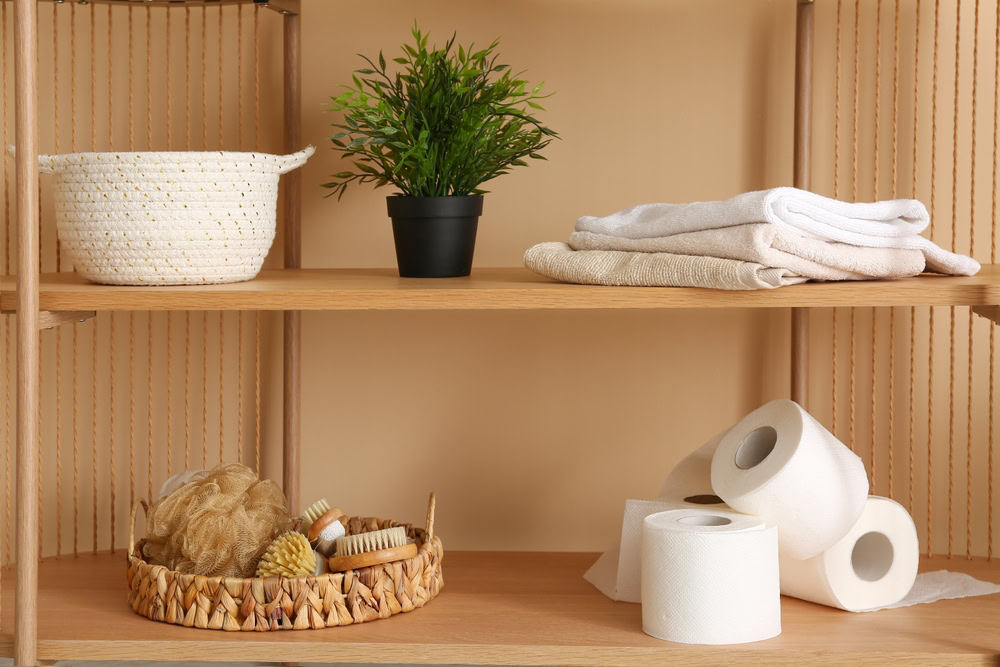Can We Use Tissue Paper for Istinja’?
Shafi'i Fiqh
Answered by Shaykh Dr. Muhammad Fayez Awad
Question
What is the ruling on using tissue paper for istinja’ (cleaning oneself after relieving oneself)?
Answer
In the name of Allah, the Most Gracious, the Most Merciful.
All praise is due to Allah, Lord of all worlds. Peace and blessings be upon the Messenger sent as a mercy to the worlds, our Master and Prophet, Muhammad, and his Family and Companions.
Istinja’
Istinja’ refers to the removal or reduction of impurities from the place of urination or defecation.
The basic principle in istinja’ is to use pure water, as it is the primary means of purification from impurities.
However, it is also permissible to use any solid, rough material that can remove the impurity, such as tissue paper, stones, and similar materials.
The best way to perform istinja’ is to first use a stone or a similar object, and then use water. This is because the stone or similar material like tissue paper removes the physical impurity, while the water removes any residue without mixing it.
If one uses only one method, then water is preferred, as it removes both the impurity and any residue, unlike other materials. However, if one relies solely on using a stone or a similar object, then certain conditions must be met:
Conditions
- The material used should be dry.
- It should be used before the discharge from the front or back passage dries.
- The discharge should not exceed the area of the buttocks or the glans of the penis, or the corresponding area from which urine exits in a woman.
- The impurity should not spread to any area beyond where it initially made contact during excretion.
It is also required that the number of wipes should not be less than three stones or whatever takes their place, such as tissue paper or any pure and effective material. If the area is not cleaned with three wipes, additional wipes should be used, and it is recommended to make the number odd, like five, seven, and so on. [al-Fiqh al-Manhaji ‘ala Madhhab al-Imam al-Shafi‘i]
May Allah make us among those who repent and purify themselves. Praise be to Allah, Lord of all the worlds.
[Shaykh] Dr. Muhammad Fayez Awad
Shaykh Dr. Muhammad Fayez Awad, born in Damascus, Syria, in 1965, pursued his Islamic studies in the mosques and institutes of Damascus. A graduate of the Islamic University of Medina in 1985, he holds a Ph.D. in Islamic Studies from Bahauddin Zakariya University in Pakistan.
He has extensive experience developing curricula and enhancing the teaching of various academic courses, including conducting intensive courses. Shaykh Awad has taught Fiqh, Usul al-Fiqh, Quranic sciences, the history of legislation, inheritance laws, and more at several institutes and universities such as Al-Furqan Institute for Islamic Sciences and Majma‘ al-Fath al-Islami in Damascus.
He is a lecturer at the Sultan Muhammad al-Fatih Waqf University in Istanbul, teaching various Arabic and Islamic subjects, and teaches at numerous Islamic institutes in Istanbul. Shaykh Awad is a member of the Association of Syrian Scholars, a founding member of the Zayd bin Thabit Foundation, a member of the Syrian Scholars Association, and a member of the Academic Council at the Iman Center for Teaching the Sunna and Quran.
Among his teachers from whom he received Ijazat are his father, Shaykh Muhammad Muhiyiddin Awad, Shaykh Muhiyiddin al-Kurdi, Shaykh Muhammad Karim Rajih, Shaykh Usama al-Rifai, Shaykh Ayman Suwaid, Shaykh Ahmad al-Qalash, Shaykh Muhammad Awwama, and Shaykh Mamduh Junayd.
